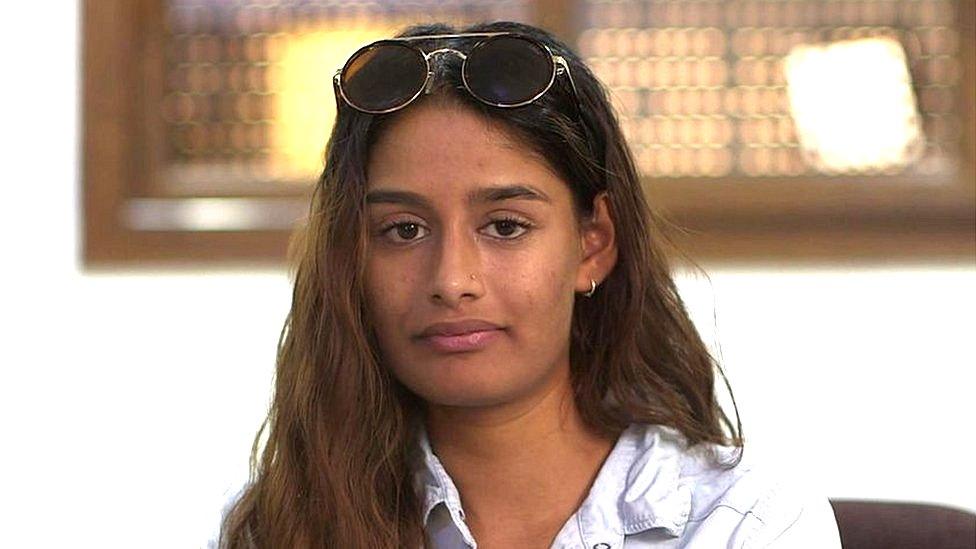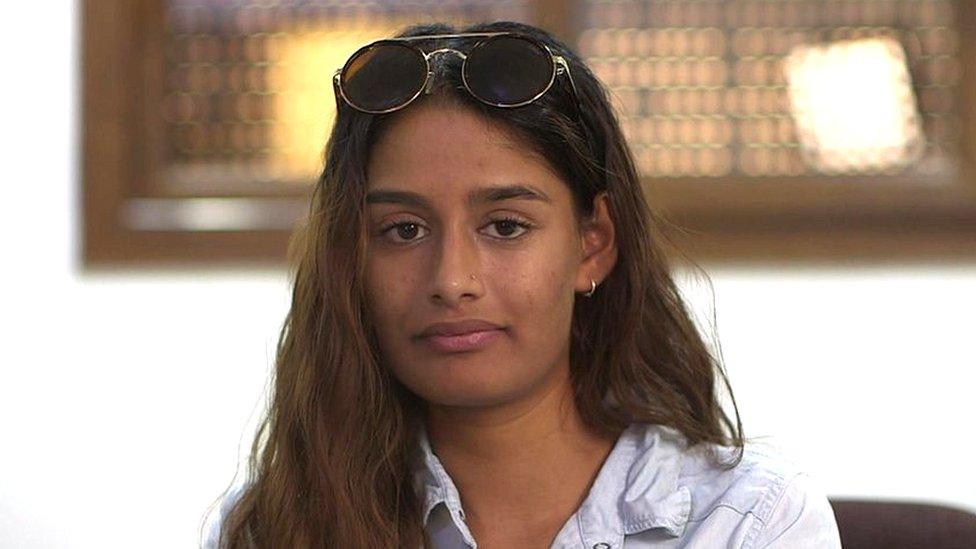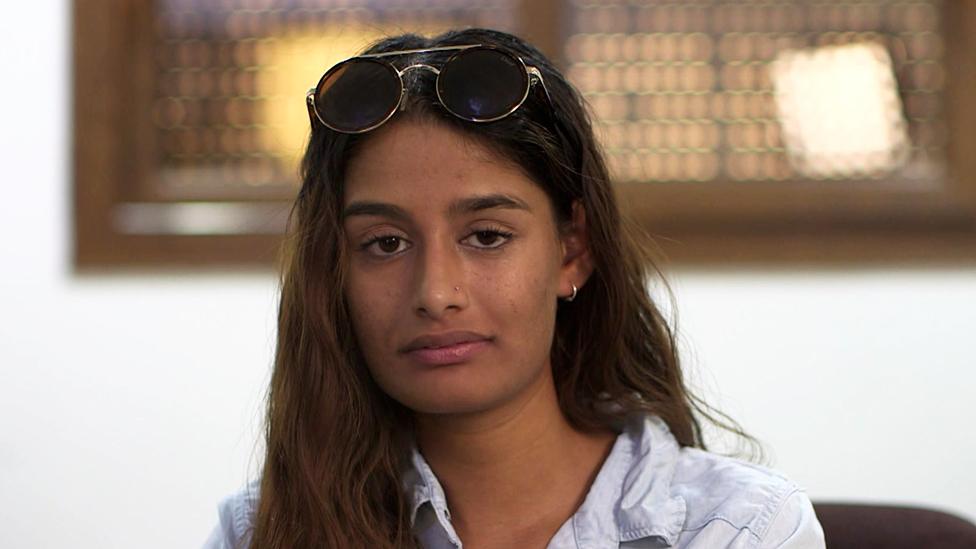Shamima Begum: Canada will investigate spy smuggling allegations
- Published
Shamima Begum speaks of her regret at joining ISIS: 'It kills me inside'
Canada says it will "follow up" claims that one of its spies smuggled three UK schoolgirls into Syria in 2015.
A BBC investigation revealed Shamima Begum, who fled the UK and joined the Islamic State group with two friends, was smuggled by a Canadian agent.
Prime Minister Justin Trudeau said he will "look at" the accusations to ensure rules were followed.
But he defended the intelligence services, who he said keep the country safe "in a very dangerous world".
"The fight against terrorism requires our intelligence services to continue to be flexible and to be creative in their approaches," Mr Trudeau told reporters at a news conference on Wednesday.
"But every step of the way, they are bound by strict rules by principles and values that Canadians hold dear, including around the Charter of Rights and Freedoms, and we expect that those rules be followed.
"I know there are questions about certain incidents or operations of the past and we will ensure to follow up on this," he pledged.
Ms Begum is now held in a detention camp in north-east Syria. Her citizenship was taken away in 2019 after she was discovered at a refugee camp following the collapse of the so-called IS caliphate.
Tasnime Akunjee, the lawyer for the Begum family, is challenging the removal of Ms Begum's citizenship and said "one of the main arguments" will be that the home secretary did not consider that she was a victim of trafficking.
He said it was "shocking" that a Canadian intelligence asset was a key part of the smuggling operation - "someone who is supposed to be an ally, protecting our people, rather than trafficking British children into a war zone".
Ms Begum was 15 when she and two other east London schoolgirls - Kadiza Sultana, 16, and 15-year-old Amira Abase - travelled to Syria to join the IS group in 2015.
The girls met Mohammed Al Rasheed, who would facilitate their journey from Istanbul into IS-controlled Syria.
A senior intelligence officer, at an agency which is part of the global coalition against IS, has confirmed to the BBC that Rasheed was providing information to Canadian intelligence while smuggling people to IS.
The BBC has obtained a dossier on Rasheed that contains information gathered by foreign law enforcement and intelligence, as well as material recovered from his hard drives, which provide extraordinary detail about how he operated.
He told authorities that he had gathered information on the people he helped into Syria because he was passing it to the Canadian embassy in Jordan.
Rasheed, who was arrested in Turkey within days of smuggling Ms Begum to IS, told authorities he had shared a photo of the passport the British schoolgirl was using.
The Metropolitan Police were searching for her, although by the time Canada received her passport details, Ms Begum was already in Syria.
A Canadian Security Intelligence Service spokesman told the BBC he could not "publicly comment on or confirm or deny the specifics of CSIS investigations, operational interests, methodologies or activities".
Defence Secretary Ben Wallace said he could not "comment on intelligence matters", but added that "at the moment" he did not recognise "what's being reported".
Ms Sultana is believed to have been killed in a Russian airstrike on the then IS held city of Raqqa. The whereabouts of Ms Abase are unknown.

Subscribe to the forthcoming BBC Sounds/BBC Radio 5 Live podcast I'm Not A Monster here.

- Published31 August 2022

- Published15 September 2021

- Published25 March 2024
